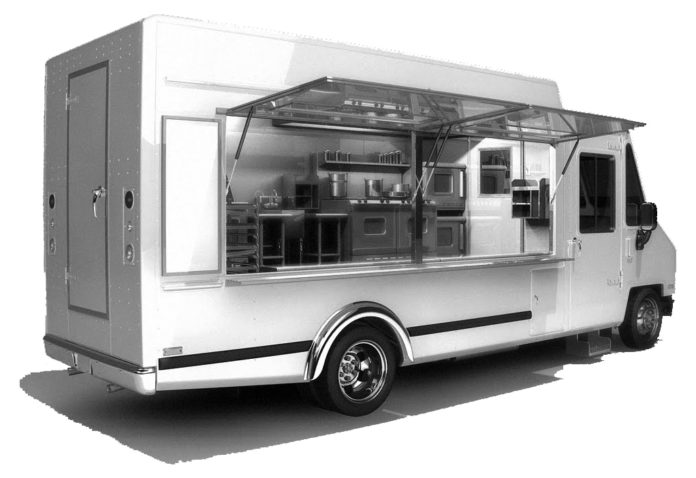Marathon’s Planning Commission added a few of its own criteria for proposed changes to the Mobile Food Vendor Unit ordinance on Tuesday. Those were in addition to Marathon City Council’s instructions to reconsider the limited hours of operation.
The motion passed 3-2 (Dick Ramsay and Jeff Smith dissenting) to remove any time limit on how long a food truck could operate in any one location; to ensure the ordinance requires adequate parking; and to change wording on where a food truck could park from “a legally operating permanent retail business” to a property that has commercial or industrial zoning. Staff will work on the changes and bring them before the Planning Commission at the next meeting.
Ramsay suggested other ideas for the commission to consider including amending the ordinance to how garbage should be disposed, and how to deal with gray water and sewage needs, and requiring food trucks to display letters of permission from private property owners to operate in a particular location. He also questioned … STATE LAW. The Planning Commission as a whole declined to put those specifics in the local ordinance.
“There’s enough teeth in this ordinance,” said Commissioner Lynn Landry.
“It would make sense for the food truck to pay the property owner for trash facilities, but I don’t see why the city should be determining exactly how that’s done,” said Chairman Patrick Stevens, adding that current law already has provisions for those who don’t.
The commission did, however, direct staff to research whether the city’s existing food truck is in compliance with current law.
Jack Bernowitz, owner of Cocomo’s was in attendance. After the meeting he said, “I’m not happy the way it turned out. That’s all I’m going to say. It seems the powers that be don’t want us around in Marathon.”
Marathon’s current law allows for two types of mobile food vending. The first is the kind that is allowed to stay for hours at a particular spot, provided it has the permission of the industrial or commercial property owner. It must also “remove the mobile vendor food unit from the site … or store the unit indoors and out of public view at the end of each business day.” The other type of mobile food vending allowed in Marathon applies to ice-cream trucks or lunch trucks that are allowed to stop in the right-of-way for up to 10 minutes. The sale of anything besides food from mobile units is prohibited.
Both Commissioners Ramsay and Lott Panskyy also questioned whether it is fair to have mobile food trucks compete with brick-and-mortar restaurants. Ramsay noted the restaurants pay utility costs. Lott wondered whether the ordinance could be amended to require food trucks to maintain a certain distance from established restaurants.
“Couldn’t we require them to be 1,000 feet away?” he asked, to a chorus of laughs and groans from the audience.
“We just got out of that with the liquor licenses,” said Planning Director George Garrett.
In other news:
Last month the Planning Commission approved an addition to the subdivision regulations. It would require any property owner subdividing one parcel into more than four parcels to submit a conditional use permit. The conditional use permit would describe how the property is intended to be used. The new regulation was approved 5-0 by the Planning Commission, no doubt in response to community outcry over the subdivision of four lots covering 10 acres into 32 lots on Sombrero Beach Road.



























